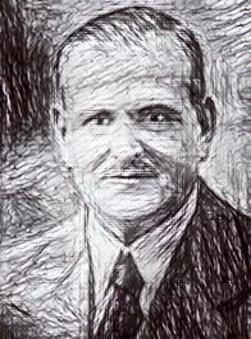(Como, 24 agosto 1883 – Desio 28 settembre 1946)
Achille Grandi, operaio tipografo di Como, fu allievo dell’Istituto di Studi Sociali, fondato a Bergamo dall’Opera dei Congressi, nel clima di fervore sociale sviluppatosi nel mondo cattolico, successivamente all’enciclica Rerum Novarum di papa Leone XIII.
Si impegnò nella Direzione delle Opere Cattoliche di Como e nella Lega cattolica del lavoro di Monza, assumendo, nel 1908, la carica di Vicepresidente del Sindacato Italiano Tessile (SIT). Instancabile organizzatore sindacale estese la propria attività in Lombardia e in gran parte d’Italia. Nel 1918 diventò presidente del SIT ed entrò nell’esecutivo nella Confederazione italiana dei lavoratori (CIL), la neonata confederazione d’ispirazione cattolica. Grandi sarà segretario generale della Cil dal 1922 al 1926. Nel 1919 fu tra i fondatori del Partito Popolare, nelle cui fila fu eletto deputato, opponendosi a qualsiasi collaborazione con il fascismo. Fu costretto a sciogliere la Cil nel 1926 e a ritirarsi a vita privata, ritornando al mestiere di tipografo. Rimase riferimento per il mondo sindacale cattolico, tanto che Badoglio, nel 1943, subito dopo la caduta del regime, lo nominò Commissario della Confederazione dei Lavoratori dell’Agricoltura. Fondò, insieme a Bruno Buozzi e Giuseppe di Vittorio, la Confederazione Generale del Lavoro (Cgil) firmando con Di Vittorio ed Emilio Canevari (succeduto a Buozzi dopo il suo assassinio) il Patto di Roma di unificazione delle forze sindacali democratiche (cristiana, socialista e comunista), sottoscritto nel giugno 1944.
Contemporaneamente all’attività sindacale, fondò, nell’agosto 1944, le Associazioni Cristiane Lavoratori Italiani (ACLI), divenendone primo presidente nazionale. Aderì alla Democrazia Cristiana, nelle cui liste fu eletto Deputato all’Assemblea costituente.
Achille Grandi, typographer in Como, was a student of the Institute of Social Studies founded in Bergamo from the “Opera dei Congressi”, in the climate of social fervor developed in the Catholic world after the encyclical Rerum Novarum of Pope Leone XIII.
He engaged with Direcorate of Catholic Activities in Como and in the Catholic Labor League of Monza, assuming in 1908 the charge of vice-president of the Italian Textile Union (SIT). Tireless union organizer, he extended his activities in Lombardy and in most of Italy. In 1918 he became president of the SIT and entered the executive board of the Italian Confederation of Workers (Confederazione Italiana dei Lavoratori CIL), the newly-formed catholic Confederation. Grandi will be general secretary of CIL from 1922 to 1926. In 1919 he was one of the founders of the “Partito Popolare”, in whose row he was elected deputy, opposing any collaboration with fascism. In 1926 he was forced to dissolve CIL and to retire to private life, returning to his typography profession. He remained a point of reference for the Catholic trade unions, so that Badoglio, in 1943, immediately after the fall of the fascist regime, appointed him Commissioner of the Confederation of Agricultural Workers. As representative of the Christian party he worked with the representatives of the other two major parties Bruno Buozzi, socialist, and Giuseppe Di Vittorio, communist, to build one antifascist trade unions confederation.The Patto di Roma establishing the new confederation CGIL was signed in June 1944 (Emilio Canevari succeeded Bruno Buozzi after his assassination).
At the same time Grandi founded, in August 1944, the Italian Christian Workers’ Associations (ACLI), becoming its first national president. He joined the Christian Democracy party, on whose list he was elected deputy to the Constituent Assembly.

